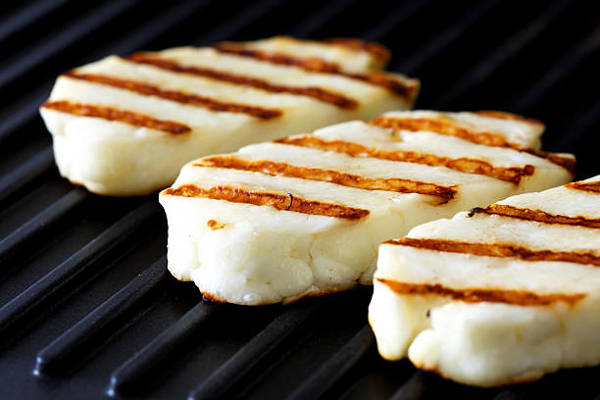Unless you have spent the past few days living under a rock, you will no doubt be aware that Marks & Spencer has launched an intellectual property infringement action against supermarket rival, Aldi, on behalf of its beloved ‘Colin the Caterpillar’ cake in the English High Court.
M&S claims that Aldi’s ‘Cuthbert the Caterpillar’ cake infringes its intellectual property rights as the similarity between the two cakes will cause consumers to believe the two chocolate cakes are from the same source or in some way connected.
Since the news broke, Aldi’s social media team has been working hard to launch its #FreeCuthbert campaign which has caused widespread hilarity online and, on a more serious note, has shone a light on how a good marketing team can be, in today’s social media-obsessed world – a cater-pillar of strength in a legal crisis. However, putting the ongoing plethora of jokes aside, what are the legal issues to consider here? And what are the lessons to be learned?
Colin the Caterpillar
Born in 1990, Colin the Caterpillar has enjoyed a very positive relationship with the British public ever since by becoming a staple of celebratory events. To date, M&S has sold over 15 million caterpillar cakes and has recently expanded the product line to include various other caterpillar-inspired sweet treats.
As a result of Colin’s nationwide popularity, M&S has registered two separate trade marks with the UK Intellectual Property Office for its ‘Colin the Caterpillar’ branding, in both 2008 and 2020. The trade marks were registered under class 30, which relates to types of food.
#SaveColin v #FreeCuthbert
Cuthbert the Caterpillar cake is one of many copycat(erpillars) currently on sale in British supermarkets, with Tesco, Sainsbury’s, Morrisons and ASDA all offering their own version of a chocolate caterpillar. So, why has M&S chosen to target Aldi in its legal claim?
M&S claims that Aldi’s cheaper caterpillar cake “rides on the coat-tails” of its reputation for producing high-quality goods, as its obvious similarity will confuse consumers and suggest that Colin and Cuthbert are from the same source or otherwise connected. M&S states that this provides Aldi with an unfair advantage to the detriment of its registered rights, and as a result, amounts to trade mark infringement, and is passing off Cuthbert the Caterpillar as being in some way connected or associated with Colin the Caterpillar.
M&S wants Aldi to remove its Cuthbert the Caterpillar product line from sale and agree not to sell anything similar in the future.
What is trade mark infringement?
Trade mark infringement relates to the unauthorised use of a registered trade mark by any third party. A trade mark can be used to protect words and/or images in relation to any type of good or service. In the UK, trade marks are regulated by the Trade Marks Act 1994.
Section 10 of the 1994 Act defines trade mark infringement as being, in the course of trade:
- The use of a sign which is identical to the registered trade mark on an identical product or service.
- The result of using an identical symbol or mark on a similar product or service, or a similar symbol or mark on an identical product or service, will result in the likely confusion or likely association, on the part of the public, between the registered trade mark and the infringing mark.
- The result of using a sign which is identical to, or similar to, the registered trade mark is one which, being without due cause, takes unfair advantage of, or is detrimental to, the distinctive character or the repute of the trade mark (providing the registered trade mark has a reputation in the UK).
In order to establish whether trade mark infringement has taken place, the court will assess whether the trade mark has, at the very least:
- been used for business use;
- breached one of the actions outlined in the 1994 Act; and
- been used for commercial purposes in the course of trade.
The legal test for trade mark infringement is complex and requires expert advice. If anyone is wishing to pursue a claim or defend against one, we strongly recommend instructing lawyers/legal counsel as early as possible. Should a person or business be found guilty of trade mark infringement, they can face both criminal and civil sanctions.
What is passing-off?
Passing-off applies to unregistered intellectual property rights. The central themes pertaining to a passing-off claim are misrepresentation, goodwill and loss or damage. In this instance, M&S will be required to show that Aldi has misled consumers to believe that Cuthbert the Caterpillar is connected or associated with Colin the Caterpillar (misrepresentation) and has used M&S’ reputation with British consumers to sell its product (goodwill) resulting in the likelihood of loss or damage to M&S.
In assessing a passing-off claim, the Courts will usually apply a three-stage test:
- Is there goodwill or reputation attached to the goods or services?
- Is the misrepresentation by the alleged infringer (whether or not intentional) leading or likely to lead the public to believe that the goods or services offered are the goods or services of the party claiming passing off?
- Has there been damage or is there likely to be damage to the party claiming passing off as a result of the defendant's misrepresentation?
Other IP infringement cases to get your teeth into
The Saucy Fish Co. v Aldi
The Saucy Fish Company brought a trade mark infringement action against Aldi in 2014, alleging that the packaging of its seafood products had been copied by Aldi’s “Saucy Salmon Fillets”.
The Saucy Fish Company had registered various trade marks to protect its branding, which included registrations for its name, logo, and distinctive black packaging.
The English High Court awarded The Saucy Fish Company with an interim injunction prior to a full court hearing. The injunction was later discharged, however, as the parties reached an out-of-court settlement which saw Aldi permanently discontinuing its “Saucy Salmon Fillets”.
Nestle’s battle to trade mark its four-finger shape of a Kit Kat
In 2002, Nestle submitted a trade mark application to the European Union Intellectual Property Office (“EU IPO”) for the shape of its four-finger Kit Kat which they described as being “four trapezoidal bars aligned on a rectangular base”. Four years later, the EU IPO granted Nestle its trade mark much to the chagrin of various other confectionary brands, including British chocolate heavy-weight, Cadbury.
A very lengthy court battle ensued which saw many IP enthusiasts frothing at the mouth over the debate on whether a shape could be the subject of a trade mark.
In the end, however, the European Court of Justice ordered the EU IPO to “reconsider” its decision to award Nestle its trade mark for the four-finger shaped Kit Kat, as it was unconvinced that the Kit Kat’s shape was “sufficiently distinctive” across the whole EU bloc.
Despite losing the battle to obtain a trade mark across the entire EU bloc, Nestle was successful in acquiring trade marks in some EU countries for its four-finger Kit-Kat shape, including France and Germany.
Toblerone (Mondelez International) v Twin Peaks (Poundland)
In 1908, the Swiss-chocolate nougat bar “Toblerone” was created. The shape of the chocolate bar (which was inspired by the Matterhorn mountains) remains iconic to the present day.
In 2017, a dispute broke out between Mondelez International and Poundland over its respective triangular-shaped/mountain-inspired chocolate bars. Mondelez claimed that Poundland were infringing its trade mark by creating the “Twin Peaks” chocolate bar, which was not only shaped into triangular peaks, but was also packaged in a very similar way with gold wrapping and red lettering.
An out-of-court compromise was reached between the parties which led to Poundland changing its “Twin Peaks” packaging to be blue with gold lettering. Poundland later made further amendments to the shape of its chocolate bar (which was inspired by the Wrekin and Ercall hills) so that it better represented the hills’ outline.
Lindt v Haribo
The dispute started in 2012 with Haribo claiming that Lindt was infringing on its “gold bear” trade mark by selling gold foiled chocolate bears. Haribo argued that consumers would be confused between the two bear products and as such, wanted Lindt to discontinue its product line.
Lindt was the eventual winner as the German Federal Court of Justice ruled in its favour and stated: “Lindt’s sale of bear-shaped chocolates wrapped in a golden foil with a red ribbon is neither a violation of Haribo’s Gold Bear trademark nor an illegal imitation of the fruit-gum products”.
How can we help?
Colin v Cuthbert is not the first intellectual property infringement battle in the food and drink sector to reach the Courts, and it will certainly not be the last. In the high-value world of branded food and drink products, parties will look to take advantage of successful brands, and the owners of those brands need to do all they can to protect their rights.
If you would like to find out more about your business’ intellectual property including how to identify, commercialise and protect it, please do not hesitate to get in touch with our expert Intellectual Property team.


